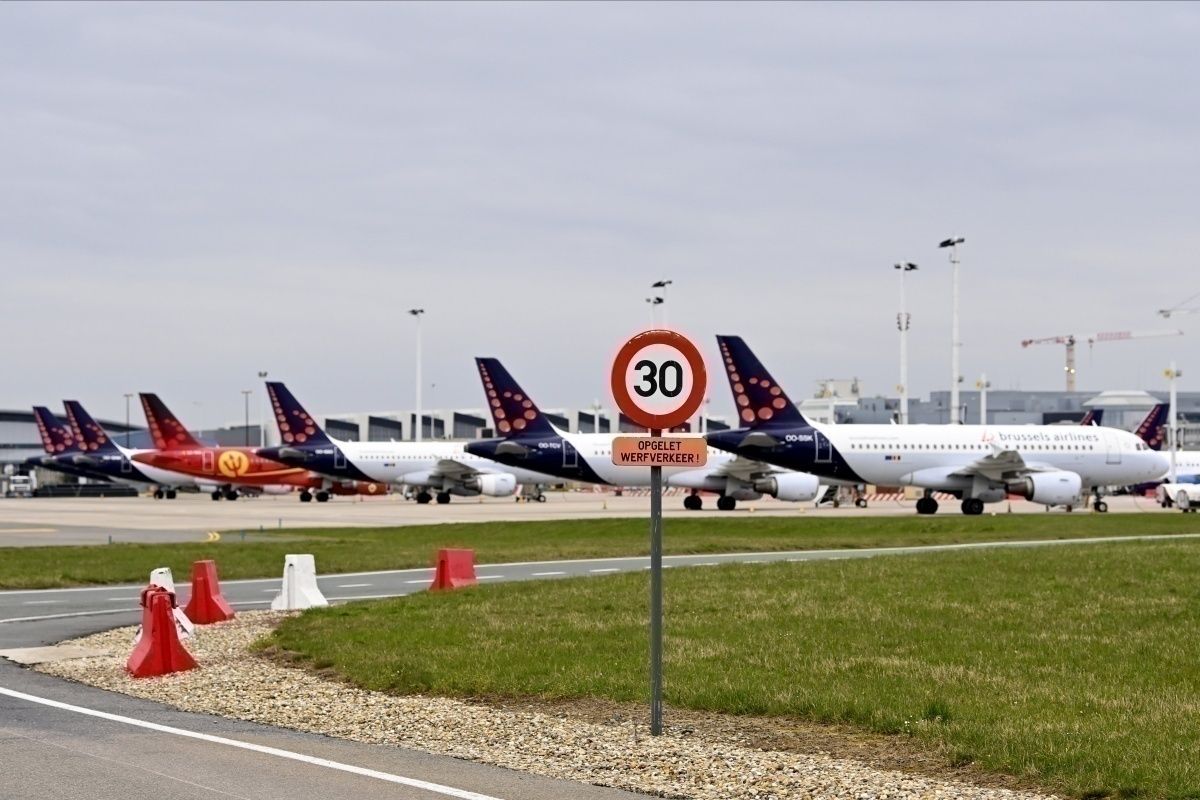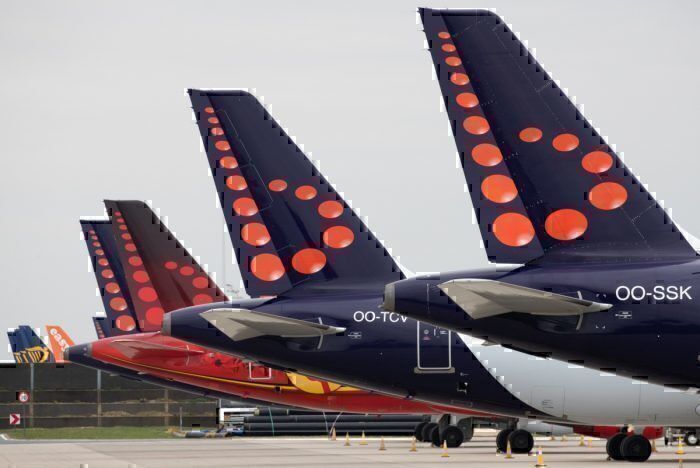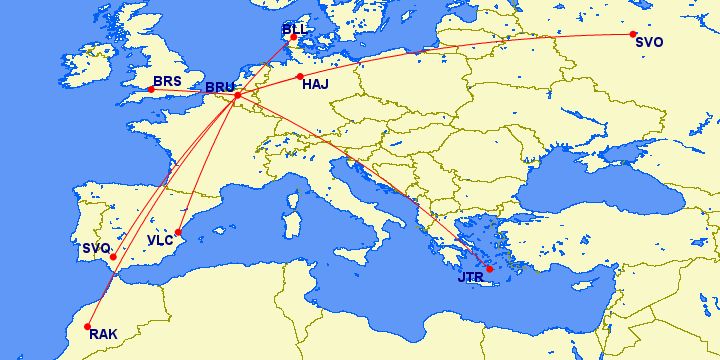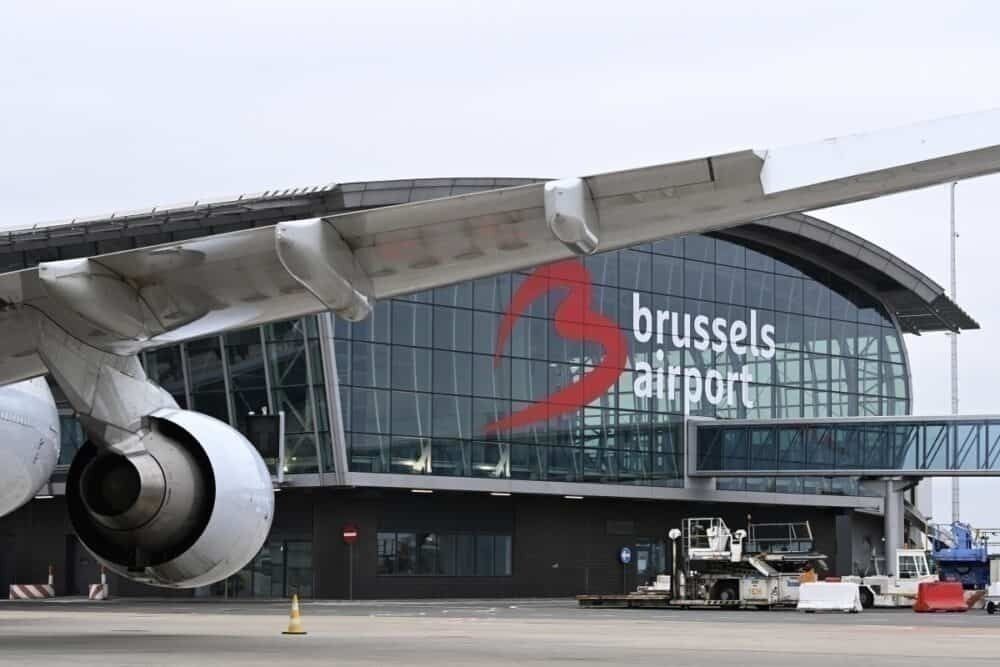Brussels Airlines, the Lufthansa Group subsidiary, is set to receive state aid from the Belgian government. While the details of the deal have not been disclosed, it’s a hopeful outlook for the Belgian airline. However, despite this ray of hope, the airline has taken the steps to remove eight destinations from its schedule until April 2021, one of the longest cancellations we’ve seen to date.
State aid is confirmed
As reported this morning in Reuters, Brussels Airlines, the Lufthansa Group’s Belgian airline, has confirmed that it will receive financial assistance from its government. Its president Etienne Davignon told Belgian newspaper La Libre Belgique,
“The principle is now established that we will benefit from state aid.”
This is in line with the outlook from Lufthansa CEO Carsten Spohr, who said earlier this week that the Group would be seeking state aid in a number of geographies. He mentioned specifically Germany, Switzerland, Belgium and Austria, all home nations of the Group’s various airlines.
It had previously been mooted that Brussels Airlines could be renationalized. However, it looks as if, at least for now, this will not be going ahead. Davignon is reported by Reuters to have said that the benefit of aviation to the economy is justification enough for the bailout. He commented that a renationalization of the airline would not make any sense.
As yet, details of the bailout terms and amount have not been disclosed by the airline. We’ve reached out to Brussels Airlines for further information.
Eight destinations scrapped for a year
Regardless of the state bailout that appears to be on the cards, Brussels Airlines has taken one of the longest term views on the pandemic we’ve seen to date. The airline had already stated its aircraft would remain grounded until at least mid-May, but now it has also scrapped eight destinations from its schedule through to April 2021.
These destinations are Hanover (Germany), Valencia and Sevilla (Spain), Billund (Denmark), Santorini (Greece), Bristol (UK), Marrakesh (Morocco) and Moscow (Russia). The airline will not restart flying to these locations until the IATA summer 2021 season, which is April next year.
Kim Daenen, spokesperson for Brussels Airlines, told De Standaard about the cuts, saying,
“It is difficult to make predictions about the future, and the reason for scrapping destinations varies from destination to destination … But in general, we do not expect the demand to return to 100% in the longer term,”
Brussels Airlines’ CEO is optimistic
Despite the challenges facing the aviation industry, the airline’s CEO remains upbeat about the future of his company. Prior to the coronavirus outbreak, Brussels Airlines was looking to restructure following a decade of annual losses. The current situation has accelerated this process, and the airline is driving towards achieving an 8% profit margin in future.
Its CEO Dieter Vranckx is reported by the Brussels Times to have said,
“In the end, the goal is to grow profitably from 2023. But first, we have to survive the coming weeks.”
Brussels Airlines had been quick to take action on its flight schedule following the outbreak in Italy. Vranckx noted that the airline had seen a drop in bookings of around 6%, which continued to get worse with each passing day. As such, in early March, Brussels Airlines became one of the first airlines in Europe to begin dropping flights.
Vranckx’s outlook appears to be very much in line with president Davignon’s opinion, in that he also believes in the value of the airline to the Belgian economy. He said,
“We employ 4,200 people, and there are another 40,000 jobs directly dependent on Brussels Airlines. That’s four times more than if the flights to Zaventem were operated by a foreign company. Tourists who come to Belgium also spend an average of €650, not counting airline tickets. Thanks to us, Brussels is a hub, and I’m sure it will continue to be so.”
What do you think the future holds for Brussels Airlines? Let us know in the comments.




